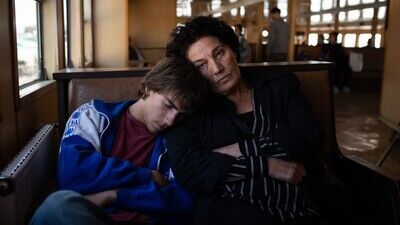
Because of the death threats you got for “And Then We Danced,” were you worried going into making “Crossing”?
I wasn’t worried, actually. My producer Mathilde Dedye, who I worked very closely with, took precautions just in case, but Georgia is a very safe country, and the people are very, very open. Those people who were yelling the loudest [about “And Then We Danced”] are a small minority, and they probably don’t even remember my name.
With this movie, as soon as it came out in Berlin, they started writing disparaging pieces about it in the media and calling it all sorts of crazy stuff. We did a very conscious thing then—we pulled it from being screened in Georgia, because we didn’t want it to be used in this political way. We will screen it at some point, but we’ll see how we do it.
“Crossing” isn’t meant to be a documentary, but you spent a lot of time researching the trans community in Istanbul. Research was also central to your script development in “And Then We Danced.” It seems you’re very invested in understanding the worlds you chronicle.
I directed a lot when I was younger in Sweden—I did a lot of TV and things like that—and one day I was like, “Wait a minute, this is just a job. What’s the point? I can’t just be a director. I want to do something that feels more meaningful with my time.” So the idea of every step of the process being interesting to me personally—where I learn new things and see new things—has been a driving force in my filmmaking. And then what happens, inevitably, is that I meet people, I see specific things that I want to share with an audience or that I want to capture.
I’ve also always been very obsessed with the notion of time and things getting lost in time. When I was a kid, my father had old Georgian films on VHS, and we watched them. Also, the Neorealists—Pasolini, Fellini—they’re capturing an essence almost. Like a movement, like a spark. That’s what I wanted to do with both “And Then We Danced” and this film—to be able to do that, I have to spend time there and be in those places.
Istanbul is such a transient place. It’s always changing, people are changing—it never stays the same. So even though I went to Istanbul as a kid, it’s a different place from the one I now encounter as an adult. And all of the people that you see in the film—everyone except Lia, the two policemen and the taxi drivers—all of the rest are real people. You find them, and they’re so interesting and funny and smart and witty. When I met them, I was like, “My god, they have to be in a movie. We need to see it. People need to know these women.”

